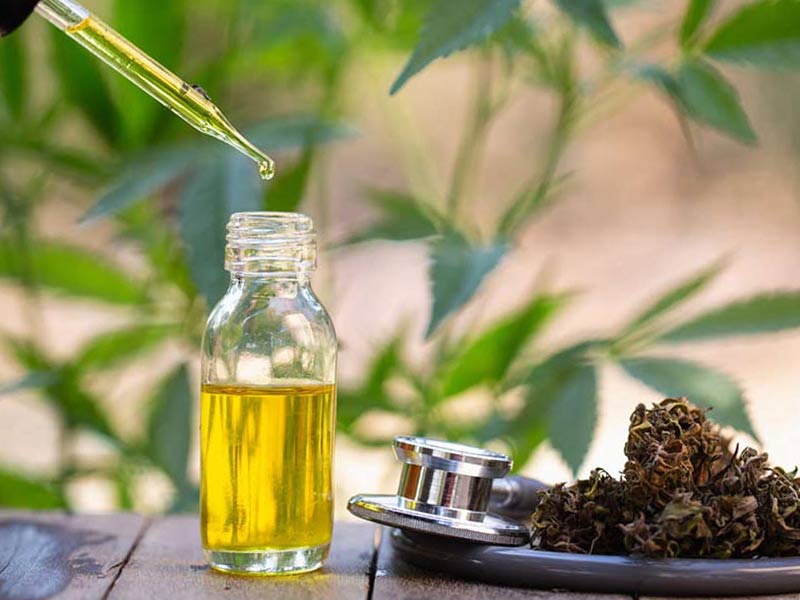Is CBD Safe?

The World Health Organization (WHO) is an international body concerned with public health. As an agency of the United Nations, it is the reference authority on any public health-related issue, which is why the WHO is often called upon for public health advice and safety information.
WHO’s mission is to “build a better and healthier future for people everywhere” by trying to combat disease and manage public health concerns. As you can imagine, this is hard work and that is why this organization is so important.
The World Health Organization’s Expert Committee on Drug Dependence (ECDD) is made up of a group of independent experts in the field of drugs and medicines. They meet frequently to discuss certain related issues, and one of the most recent topics of conversation has been cannabidiol (CBD).
Most importantly: what is CBD?
You may already know this information, but you may not know what CBD is and why many people consume it. CBD or cannabidiol is one of the active chemicals (cannabinoids) present in the hemp plant. People are often frightened when they hear about hemp because of the bad reputation it has been given, but CBD is only one of the substances in hemp and is not the one that causes psychoactive effects. Recreational hemp users do not smoke the plant for its CBD, but for its THC, a substance that does have psychoactive properties. That is why it is important to know what the World Health Organization says about these substances.
Because of the absence of these intoxicating properties, CBD is becoming increasingly popular. Although it has not yet been sufficiently studied, research continues to be conducted on the potential health benefits of CBD. Many people now consume CBD as a health supplement because it can interact with the body in a positive way to stimulate healthy body functioning, improving overall well-being and maintaining homeostasis. Or, at least, this is what proponents of this substance claim.
CBD is non-toxic according to the World Health Organization
In toxicological terms, they found that CBD has a fairly low toxicity. They mention that not all of its possible effects have been explored, but state that it does not appear to have any effect on embryonic development or on a number of biochemical and physiological parameters, and that there are no significant effects on animal behavior except in cases of extremely high doses (greater than 150 mg/kg in vitro or greater than 30 mg/kg per day for 90 days in monkeys).
The report notes that CBD may have less desirable interactions with some drugs that affect the production of some liver enzymes, but for now the WHO is not sure about this issue.
In summary, CBD is very unlikely to have toxic effects, which means it is safe for human consumption. In the section on adverse reactions in humans, the World Health Organization states that it is a substance that is generally well tolerated by humans and has a good safety profile.

CBD has no potential for abuse and dependence
In a study conducted with male mice, subjects were injected with 0.1, 1 or 3 mg/kg of CBD or 1, 3 or 10 mg/kg of THC every day for 14 days. The researchers found that the mice developed tolerance to THC, but not to CBD at any of the doses given.
It should be noted that no studies on possible physical dependence to CBD were conducted in either animals or humans. Human studies have never detected withdrawal syndrome or tolerance to CBD.
The World Health Organization has stated that CBD has no abuse potential. In an animal study, male mice were given 5 mg/kg of CBD and the threshold frequency required for intracranial self-stimulation did not change. However, high doses of 10 mg/kg or 20 mg/kg raised the threshold for reward-reduced activity. This effect is the opposite of what happens with cocaine, methamphetamine and opioids, which lower that limit. That suggests that CBD does not behave like other drugs that do have abuse potential, and researchers have also found that whatever the dose, it never behaves like THC.
The final verdict
With the above information we can see that the World Health Organization has labeled CBD as a safe substance, thus quelling some rumors that labeled it as a dangerous drug. Cannabidiol has no abuse potential and is not harmful, so they have stated that it should not be in any of the drug classification groups.
Basically, that means that CBD can only be considered as a Group 1 substance when it is part of hemp. CBD alone is not subject to international controls, and it is up to each government to decide on its legal status. In case you are wondering, buying CBD oil is legal in Spain as long as it comes from certified industrial hemp seeds and contains less than 0.02% THC.
Head to this site and grab some great information about cbd oil uk.

